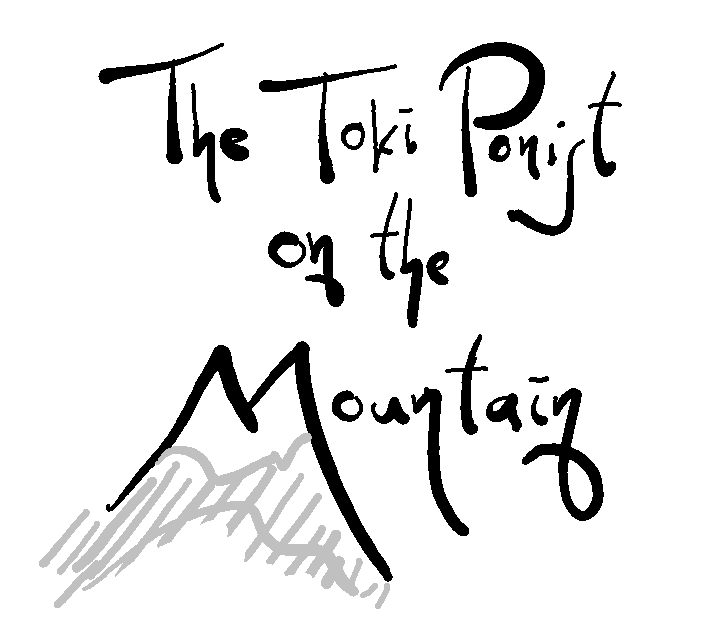ilo open li pona la, sina sona ala e ni: ilo li open e seme.
A key is more interesting when you do not know what it opens. — Toki Ponist Pu
July 2021
These are the words as recovered from the awoken well:
ona li toki e ni:
mi moku e pan sona sama kili suwi.
jan Samoka li toki e ni:
mi wile e ijo sona taso.
ona li toki e ni:
Here follows a relaxed translation:
Samoka sits across Tipi with his mouth open. He says: “Feed me! I eat nuggets of wisdom like sweet fruit.” Tipi asks: “What problem do you want to work on?” Samoka says: “I don’t care. I just want the answers.” Tipi then gives Samoka a generous portion of elephant poo. He says: “This is the result of eating wisdom.”
Associative musings:
Answers that seem to solve your problem are a delectable treat. The whole question and answering business is a booming market. There is an abundance of people willing to supply on demand or give unsollicited answers and advice about anything. And there is an even more abundant group that asks questions and pose problems.
For most things this is not a problem. Sure, a lot of answers you find will be false or limited in validity. But most found answers are a useful shortcut to finding it out in other ways. Equally useful is it, to not have an answer at all. Most pressing questions in life don’t deserve an easy answer, even though some people are happy to supply one. It is a healthy desposition to not expect every question to have a clear answer.
A lot of unrest may occur when someone, seeing the breadth of answers to questions big and large, expect all their queries to be directly answered. Or that some clever scientist should at least be able to conjure up one. It is good to also experience the tedious road of working towards a possible answer with the risk of going into the wrong direction.
When you think time is scarce and any effort an investment, it is much more enticing to search and find answers than to come up with new ones. This is also true for creative processes. It is always easier to spin on wheels that are already spinning.
Read a newer koan (Numbers can not be sacred or holy. Ratio of numbers pave the road of information and patterns.)
Read an older koan (If you cut a cake, you don't end up with flower and sugar.)
